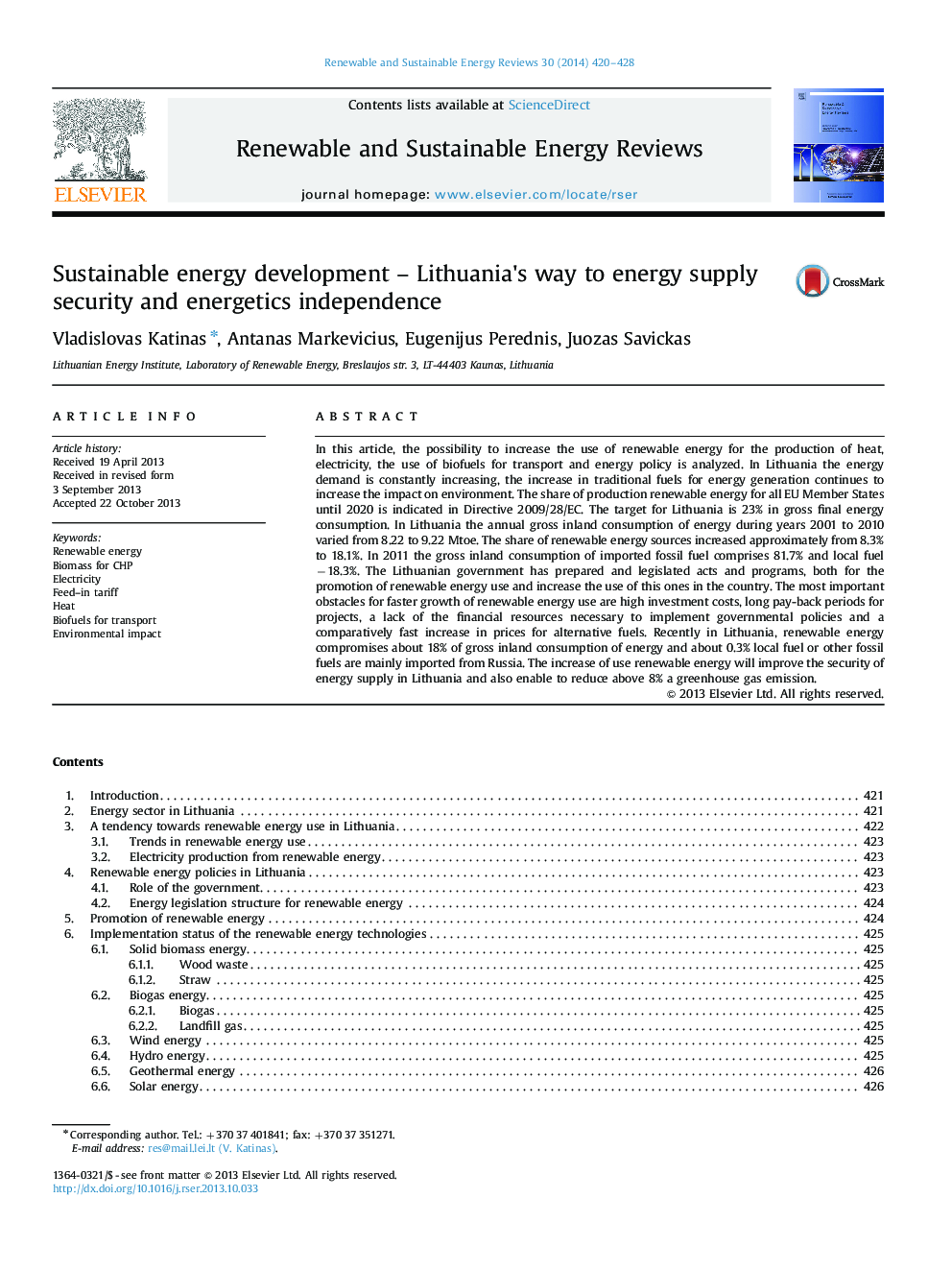| Article ID | Journal | Published Year | Pages | File Type |
|---|---|---|---|---|
| 8120440 | Renewable and Sustainable Energy Reviews | 2014 | 9 Pages |
Abstract
In this article, the possibility to increase the use of renewable energy for the production of heat, electricity, the use of biofuels for transport and energy policy is analyzed. In Lithuania the energy demand is constantly increasing, the increase in traditional fuels for energy generation continues to increase the impact on environment. The share of production renewable energy for all EU Member States until 2020 is indicated in Directive 2009/28/EC. The target for Lithuania is 23% in gross final energy consumption. In Lithuania the annual gross inland consumption of energy during years 2001 to 2010 varied from 8.22 to 9.22Â Mtoe. The share of renewable energy sources increased approximately from 8.3% to 18.1%. In 2011 the gross inland consumption of imported fossil fuel comprises 81.7% and local fuel â18.3%. The Lithuanian government has prepared and legislated acts and programs, both for the promotion of renewable energy use and increase the use of this ones in the country. The most important obstacles for faster growth of renewable energy use are high investment costs, long pay-back periods for projects, a lack of the financial resources necessary to implement governmental policies and a comparatively fast increase in prices for alternative fuels. Recently in Lithuania, renewable energy compromises about 18% of gross inland consumption of energy and about 0.3% local fuel or other fossil fuels are mainly imported from Russia. The increase of use renewable energy will improve the security of energy supply in Lithuania and also enable to reduce above 8% a greenhouse gas emission.
Related Topics
Physical Sciences and Engineering
Energy
Renewable Energy, Sustainability and the Environment
Authors
Vladislovas Katinas, Antanas Markevicius, Eugenijus Perednis, Juozas Savickas,
